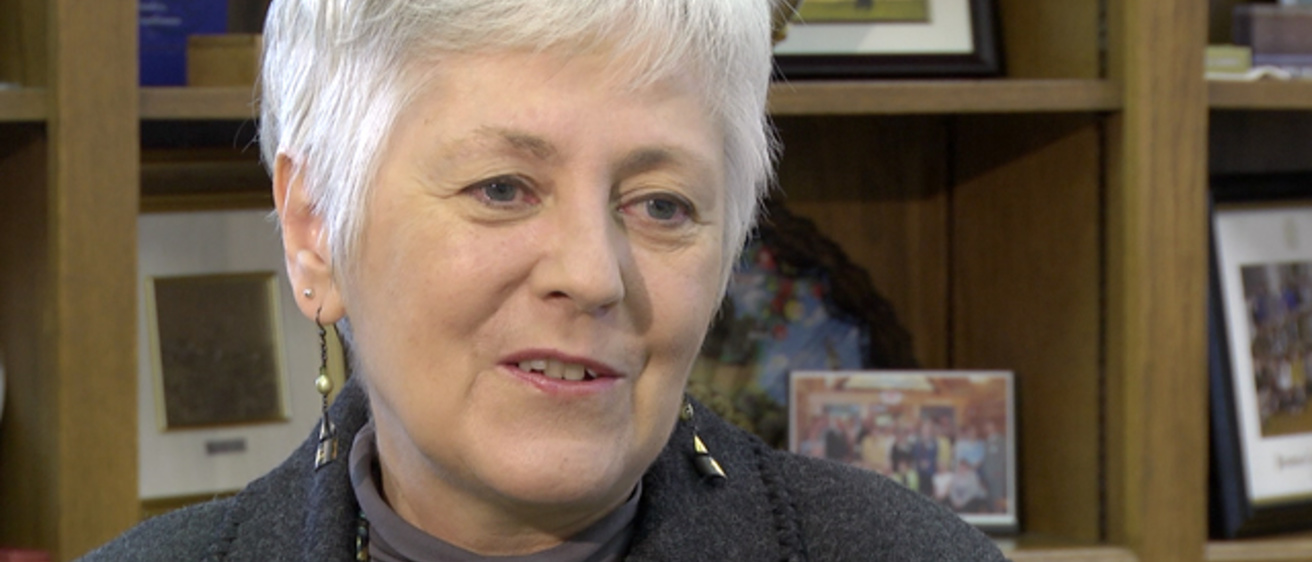The University of Iowa’s emphasis on student success promises to help power the state’s economy and keep its communities vital, said UI President Sally Mason in a presentation to the Iowa General Assembly’s Education Appropriations Subcommittee.
Mason focused on the university’s budget request for fiscal year 2014, which includes state appropriations aimed at two priorities in the UI strategic plan: fostering student success and building better futures for Iowans. See slides from the presentation on the president’s office website.
“The University of Iowa is proud of its role in preparing Iowa’s students to succeed, and in developing the human infrastructure that’s needed to drive Iowa’s economic engine,” Mason said. She noted that more than 83,000 UI alumni—including physicians, engineers, teachers, business leaders, and other professionals—live in Iowa.
The university’s FY14 budget request includes $3 million aimed at supporting community college transfer students; expanding the active-learning model used in new TILE classrooms; and providing additional financial-counseling, career, and early-intervention services.
The university also has requested $2.6 million to enhance distance education, provide career development opportunities for working professionals, and deliver Iowa Online Advanced Placement Academy and STEM education programs to Iowa K-12 schools.
Mason pointed to signs that the UI focus on student success is already yielding benefits. The university hit record enrollment in fall 2012, and enrollment growth stems largely from rising retention rates. UI officials expect to see similar growth in graduation rates.
At the same time, the university remains one of the nation’s best higher education values, earning a “best buy” designation from Fiske Guide to Colleges and making Kiplinger Personal Finance magazine’s top 100 value list. UI resident undergraduate tuition is the second lowest in the Big Ten.
Administrative and academic efficiencies help keep costs down, Mason noted. The university has reduced fringe-benefit costs over two consecutive years, saving $4.6 million this year alone. The campus has cut energy consumption by 3 percent, razed obsolete buildings, and consolidated computing equipment and operations.
Meanwhile, faculty instructional productivity has grown 6 percent over the past five years. Four- and six-year graduation rates have improved, the four-year rate rising 25 percent over the last decade.
Mason also stressed opportunities for military veterans, partnerships with Iowa community colleges, and the university’s role in statewide STEM (science, technology, engineering, and mathematics) initiatives. She made the case for an $865,000 appropriation increase for the State Hygienic Laboratory.
In closing, Mason noted a particular point of pride for the university, and a testament to the commitment of its students. She reported that Dance Marathon—the largest UI student organization—raised a record $1.5 million for pediatric cancer patients at its February event, bringing its all-time fund-raising total to $12.7 million.
